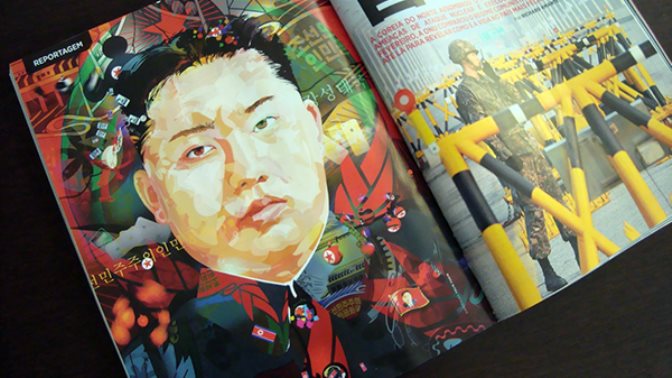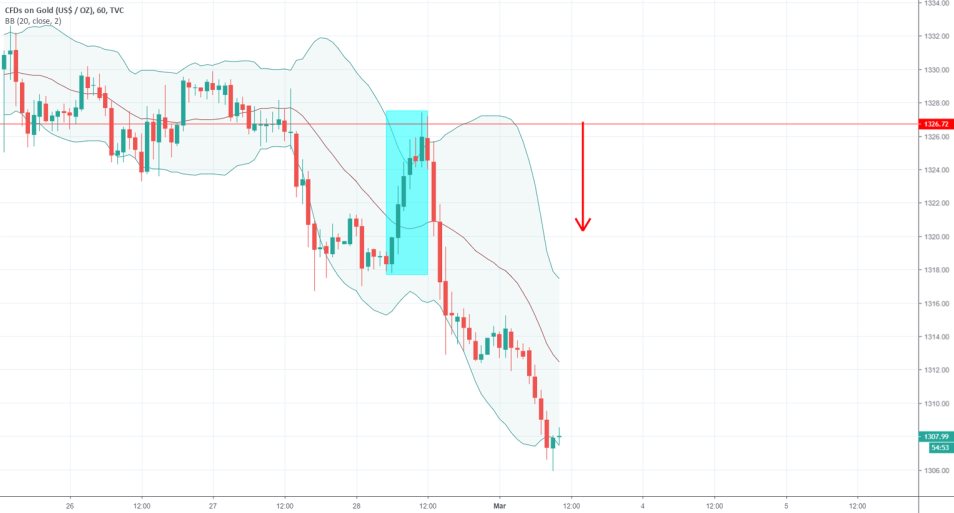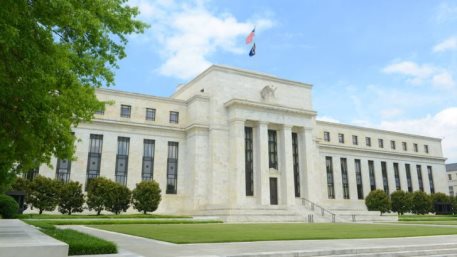
What happens in Hanoi stays in the history textbooks!
Foreign policy negotiations with North Korea are now brought full circle – the United States has been developing a comprehensive policy aimed at the nuclear ambitions of North Korea, ever since the end of the Korean war in the 1950's, and now mere several hours after the end of the summit in Hanoi, between Donald Trump and Kim Jong Un, it seems that the same policy has exhausted all of its effective resources and for a first time ever North Korea appears to be on top.
“Little Rocket Man” is a term that was coined out by Donald Trump in one of his twitter lashes against Kim Jong Un not only to ridicule the Chairman of the Democratic People's Republic of Korea, but also to criticize his continued determination of pursuing his nuclear agenda, even though his people were suffering greatly and the country was, and still technically is, facing a national crisis. Yet, it seems that Trump's inability to sway Kim over and derail his nuclear ambitions has completely changed the circumstances for the two leaders.
The second summit between the President of the United States and the Chairman of North Korea was held in the infamous Sofitel Legend Metropole hotel in Hanoi, Vietnam and was hailed as a great milestone in the historical negotiations between the two countries for the denuclearization of the Korean peninsula. However, the summit was abruptly cut short when Donald Trump decided to leave the negotiations table, saying that no official agreement was signed between the two sides.
This development was a surprising resolution of the event, as we had previously forecasted, as the expectations for the second summit were for it to conclude with a written agreement of some sort, likewise the conclusion of the first gathering between the two. What nobody expected was for Donald Trump to admit to being powerless to reach a settlement with Kim.
Finally, in a press conference after the summit Donald Trump and Secretary of State Mike Pompeo said that for the US a conclusion with no deal is a better alternative than a bad deal, yet what exactly constitutes a good deal with North Korea? For the US, and for the rest of the world as well, the complete denuclearization of North Korea and its total abandonment of the WMD's development ambitions would have been a total victory for US policy.
Yet, nobody in the US administration should have expected that North Korea would agree to such a resolution at this early stage of the talks, so President Trump and his advisers should have been prepared to strike a deal for some kind of a gradual process towards that goal, reminiscent of the last agreement between the two countries but more clearly outlined and definite than the last one.
It also seemed that North Korea was prepared to indulge in such kind of a proposal, as Kim (allegedly) surprised the Americans by proposing to dismantle his main nuclear facility at Yongbyon in exchange for a dismissal of the US sanctions in their entirety. Consequently, Trump did not agree to the proposition because of other nuclear activity in more secretive sites in North Korea, knowing that terminating the Yongbyon facility would be more of blowing smoke at the general public since there are more secretive nuclear sites in North Korea.
Therefore, striking such a deal with Kim would mean that the US would have to give up their entire leverage on North Korea, epitomized by the economic sanctions, while at the same time the nuclear R&D would continue at a slower pace.
Apparently, the two sides could not compromise with some sort of a mutual deal where North Korea commits to start dismantling a portion of its nuclear capabilities, and the US lifts a portion of the sanctions. Hence, one question remains to be answered – has the US sanctions policy ran its course and can it be stated that it is no longer effective?
To answer that question let us, first of all, try to evaluate Trump's performance in general and the way he has handled the North Korean issue thus far. In many regards his policy has been the most successful one so far, compared to previous administrations that barely sought any communication with the dictatorship of the Kim's, for the reason that he managed to hold an unprecedented in US history two meetings with the leader of North Korea, which in itself opens the prospect door for many more opportunities in the future.
The fact that Kim agreed to answer questions of American journalists, albeit promptly and hesitantly, was a sign of the warming up to a more diplomatic tone by the totalitarian regime. Furthermore, Kim and his delegation committed vaguely to continue the deliberations with the US and to have other rounds of talks in the future, which is unquestionably a symbolic win for Trump, even in the absence of a written agreement between the two. Yet, calling it a symbolic win is an extent to which we can call Trump's performance in the two summits with Kim so far a success because he failed to deliver any meaningful results thus far.
Breaking up the diplomatic ice and clearing up the way for future rounds of negotiations and diplomacy is the summarized success of President Trump so far. Trump's failure is typified by his ineptness to secure a more tangible written agreement with North Korea.
Overall, we can say that Trump's failure ranks higher than previous presidents’ success with North Korea, which is commendable and is as far as the praises of Trump and US policy as a whole go.
Why is Kim the biggest winner thus far?
For almost its entire historical existence North Korea has been in perpetual ceasefire with its southern neighbour, which means that it is not quite in a state of war with South Korea, but it's not in peace with it either. The isolationism of Kim’s dynasty has played a pivotal role in the country's road to nuclear armament, as Kim Jong Un considers having a nuclear arsenal as the only real leverage he could use to balance global politics in his favour.
On the other hand, the US has been applying its deterrence policy to combat the spread of communism on a global scale and to counter North Korea's power struggle as well.
The premise is quite simple, you do not attempt to fight a raging fire, instead, you contain it and let it burn itself up. So the main tool in the US policy book, which has been applied with some success, for the most part, are various levels of economic sanctions. By imposing those on North Korea, the US has been thus far trying to sway the country into submission and to abandon its military and nuclear agendas.
Using sanctions is the midway policy between peaceful diplomatic talks and waging war, as they are an attrition mechanism – you force your opponent to deplete his resources and put him against the wall into a submission. However, the problem with imposing sanctions is that the harsher they get- the less room you have for political manoeuvring and the implementation of any other types of solutions. There is a limit to the number of sanctions that the US can impose on North Korea and even then there is no guarantee that Kim would change his mind.
Apparently, the North Korean leader is still unwilling to completely surrender to the demands of the Western powers, which signifies the diminished effectiveness of the sanctions policy. Hence, the effectiveness of the US economic sanctions towards North Korea diminishes over time despite their increasing size, leaving the US foreign policy with only two apparent alternatives, which are either to wage war or to try and reason with Kim. Either way, Trump's sanctions leverage is lost. Moreover, it is Kim who has the upper hand now, as he can pressure Trump into giving in more ground to his regime's demands.
The bold proposition by North Korea for only a partial denuclearization in exchange for a total annulment of the economic sanctions solidifies this favourable position that Kim is currently holding. His biggest advantage now is time, for the reason that he only has to wait for Trump to make the next move, with the conditionality of no negotiation leverage, all the while the President is facing many different challenges, both abroad and at home.
“These talks will take a long time and will far outlive this presidency”, Kim was reported saying by Bloomberg.
This ominous remark by Kim, saying that the issue at hand will outlive the presidency of Trump, is meant to say two things. First of all, Trump's administration is limited by his term in office while Kim faces no such limitations at home. Second of all, Trump is running out of time and if he wants to achieve something more than a symbolic win he has to take on a riskier approach to future discussions.
Which circumstances led to the current state of affairs for Trump?
As I have already pointed out in my previous article [include hyperlink here], the prematurely held summit in Hanoi was of crucial importance for Trump, who is seeking to solidify once again his status as a successful negotiator. In just under 72 hours before the meeting, however, Trump had to respond to several major events, all of which had the potential to impede his stance, both at home and abroad.
Firstly, Trump's former lawyer Michael Cohen testified before Congress, and he unleashed a series of accusations against Trump, that could have potential legal consequences for the President. Secondly, the ongoing conflict between India and Pakistan escalated to an unseen level since 2001, as India carried out air strikes against a terrorist camp in the disputed Kashmir region, and Pakistan shot down an Indian jet and apprehended its pilot.
Such an escalation of the conflict between the two nuclear powers could potentially spell out disaster for US foreign policy, as it shifts the global focus away from North Korea.
All things considered, Trump had a very volatile few days and his presidency got shaken up by these events, which could have potentially affected his decision to cut the negotiations with Kim short and address them promptly.
Michael Cohen was one of many lawyers who represented me (unfortunately). He had other clients also. He was just disbarred by the State Supreme Court for lying & fraud. He did bad things unrelated to Trump. He is lying in order to reduce his prison time. Using Crooked’s lawyer!
— Donald J. Trump (@realDonaldTrump) February 27, 2019
How did the Markets react to the summit in Hanoi?
Investors were startled by the surprisingly rushed conclusion of the summit in Hanoi and the initial effect on the financial markets was confusion. Gold was the first asset to register any significant volatility, following the summit, with the price of the precious metal rising with 7 dollars per troy ounce.
However, as investors absorbed the news the price found resistance at the 1326 level and corrected itself to form new downwards spike. In a day of very heavy trading, the Gold registered a 13 dollar drop of its price to 1313, clearing the way for short-term bears to drive the prices even lower in next week's session.

The futures market was quick to react as well, with all of the American indexes correcting the initial investor shock and moving into positive territory. The Dow Jones Industrial Average registered a 154 basis points gains in the past two days, climbing to 26081. The Nasdaq finished with a more “moderate” gains of 50.50 basis points to 7153, and the S&P 500 had a 2day gains of 15.75 to 2800.50.
The market's positive perception of the summit can be attributed to Trump's reluctance to lift the sanctions, however, we are yet to see whether the hype from the meeting could sustain a prolonged bullish market for the major US indexes or the discouraging data from the mounting US budget deficit is going to swing the market into bearish territory.




















